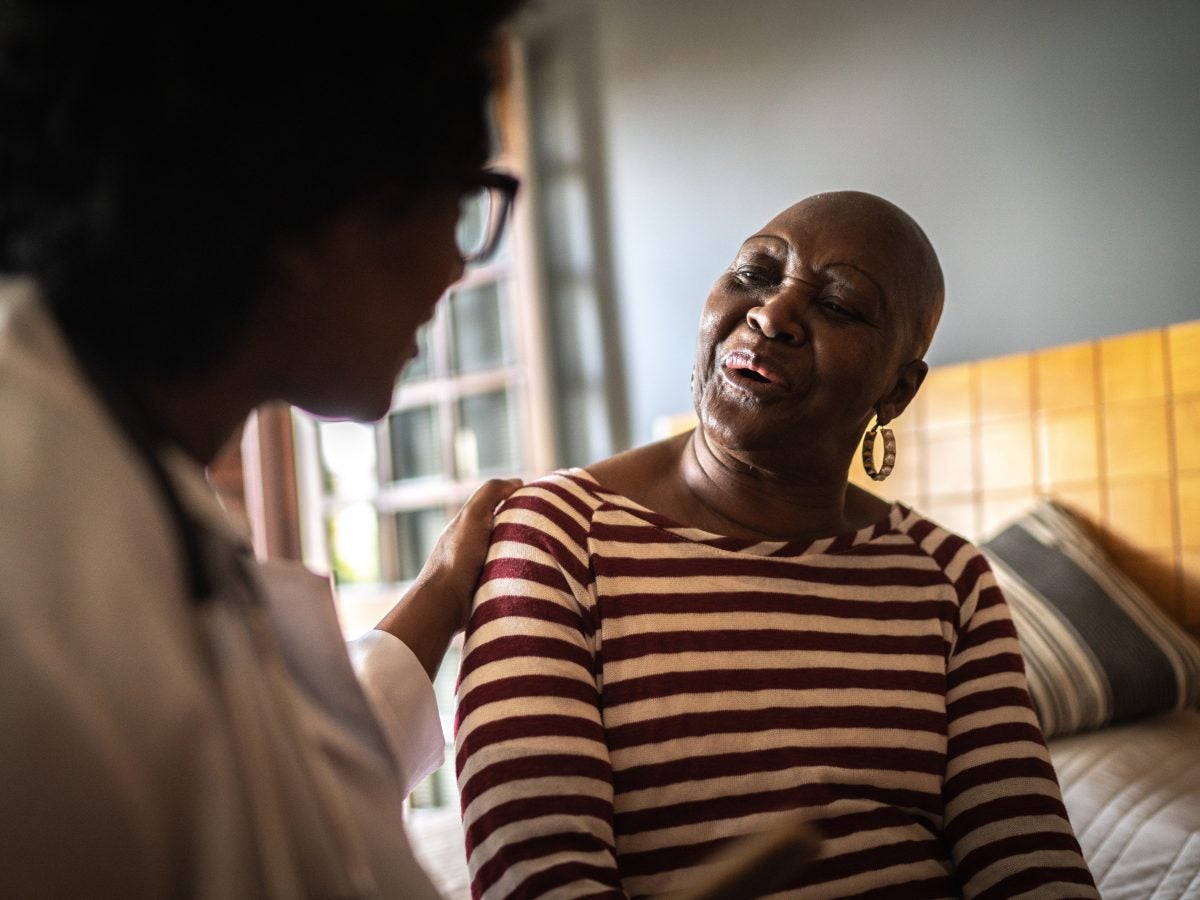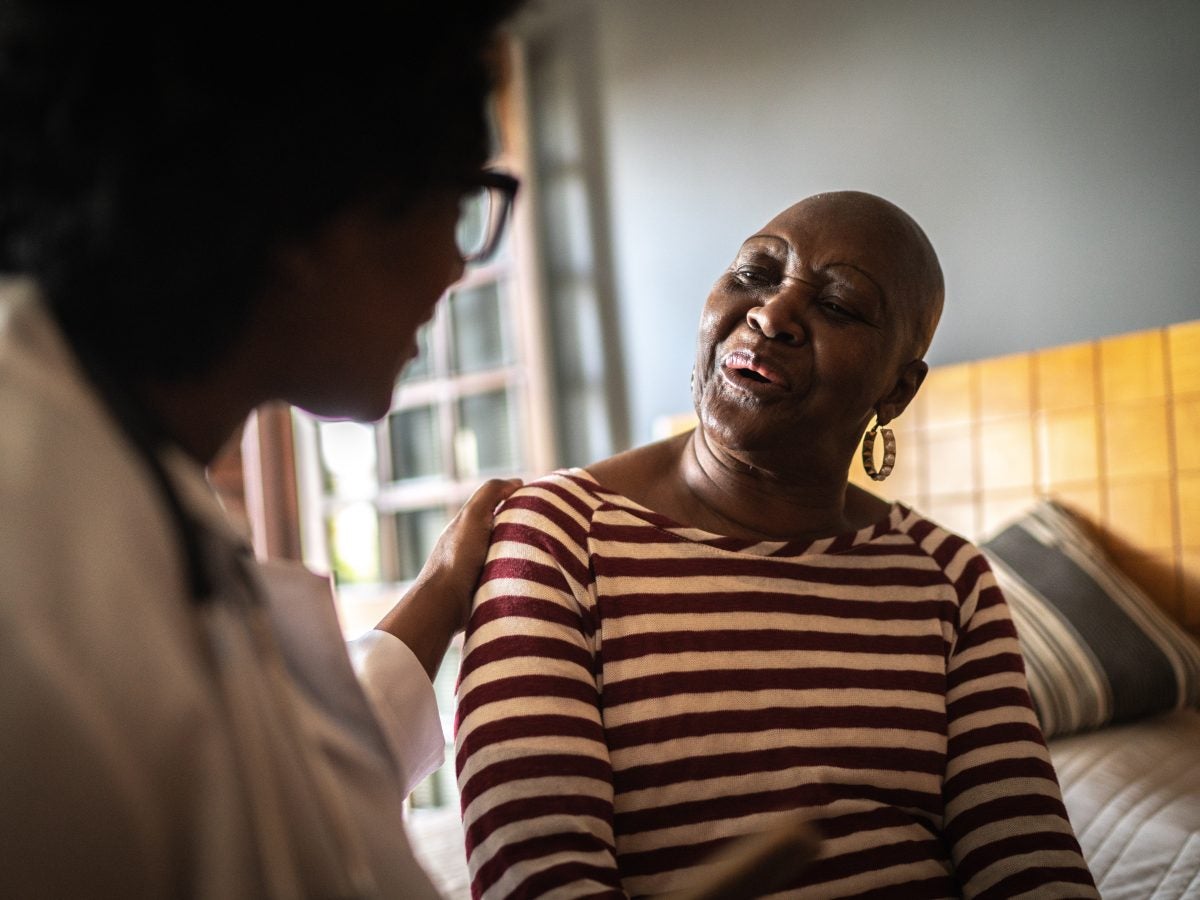The Power of Your Voice: Why It’s Time to Talk About Clinical Trials


Merck
Have you ever wondered what clinical trials are all about? They are research studies designed to learn more about how our bodies respond to investigational drugs. Advances in medical research can only be made through the efforts of many people, especially the patients who volunteer for clinical trials.
Merck, a global biopharmaceutical company, is committed to sparking conversations about clinical trials. We sat down with Dr. Adrelia Allen, Executive Director of Clinical Trial Patient Diversity at Merck, one of the driving forces behind the company’s efforts to increase diversity in clinical trials. We wanted to find out why this is important, what Merck is doing to ensure diverse representation in its clinical trials, and why it’s time for all of us in our community to talk about clinical trials.
Noel: Why is it important for clinical trials to include diverse patients?
Adrelia: Did you know that according to data from the U.S. Food and Drug Administration, from 2015 to 2019, only 24% of clinical trial participants were from racial and ethnic minorities? However, at that time, members of these communities made up nearly 40% of the U.S. population.¹ That’s quite a gap, isn’t it? This data shows a significant lack of diversity in clinical trials. It is important that people of different ages, genders, ethnicities, nationalities, and socioeconomic backgrounds, as well as members of the LGBTQIA+ community, are represented in clinical research to ensure that the data generated from the clinical trial reflects the diversity of the populations we hope to serve.
Noel: I know there are many factors at play, but what reasons do you think have contributed to members of the black community being underrepresented in clinical trials and hesitant to participate?
Adrelia: I think part of it is deep-rooted mistrust, Noel, something I’ve experienced myself. My father’s refusal to have an MRI scan to diagnose prostate cancer stemmed from that mistrust. Many people also simply don’t have enough information about clinical trials or how to get involved. Others worry about the time commitment and potential costs, like childcare and travel costs. For those of us in the healthcare industry, it’s critical to build trust and provide clear, accessible information about clinical trials. We need to make sure patients know their rights are protected and that resources and help are available to them. By removing the barriers to participation, we can give patients more confidence and self-awareness to figure out if a clinical trial might be the right choice for them.
Noel: What is Merck doing to ensure diversity in its clinical trials?
Adrelia: Merck is committed to ensuring that our clinical trials include people of diverse backgrounds. One important step we take is to select study sites based on demographic data. This means that we look at areas with large populations that have not previously been included in clinical trials, such as members of the Black/African American community, and set up study sites there. This makes it easier for people from these communities to access and participate in these trials.
We also partner with community organizations, academia, and professional associations to provide resources, including educational materials on clinical trials. In addition, we utilize a mobile clinical research unit at health fairs and community events to encourage community engagement and increase clinical trial awareness and education in diverse communities. Our ultimate goal is to ensure that our clinical trials reflect the diversity of the communities we seek to serve.
Noel: We are excited to welcome you to this year’s ESSENCE Festival of Culture! Can you tell us more about your panel discussion “Diversity in Clinical Trials” and why it is important to start conversations about clinical trials now?
Adrelia: Absolutely! Our panel, Diversity in Clinical Trials, will be held on Sunday, July 7 at 1:10 p.m. CT at GBEF Headquarters at the Convention Center. It’s all about starting conversations about this often overlooked topic. It may seem like a big topic, but it’s important to start somewhere. You may still have questions about clinical trials, and the answers can be found online, in educational resources, or by talking to your doctor and members of your family or community.
These conversations are so important because they provide a chance to clear up misconceptions, share helpful information, and help everyone feel confident in their health decisions. By breaking down these barriers and talking openly, we can encourage more people to learn about clinical trials.
Learn more about the diversity of clinical trials and how you can get involved at https://www.merckclinicaltrials.com/talktrials. Let’s continue this important conversation together!
¹Peters U, Turner B, Alvarez D, et al. Considerations for embedding inclusive research principles in the design and conduct of clinical trials. Ther Innov Regul Sci. 2023. https://www.ncbi.nlm.nih.gov/pmc/articles/PMC9568895/



